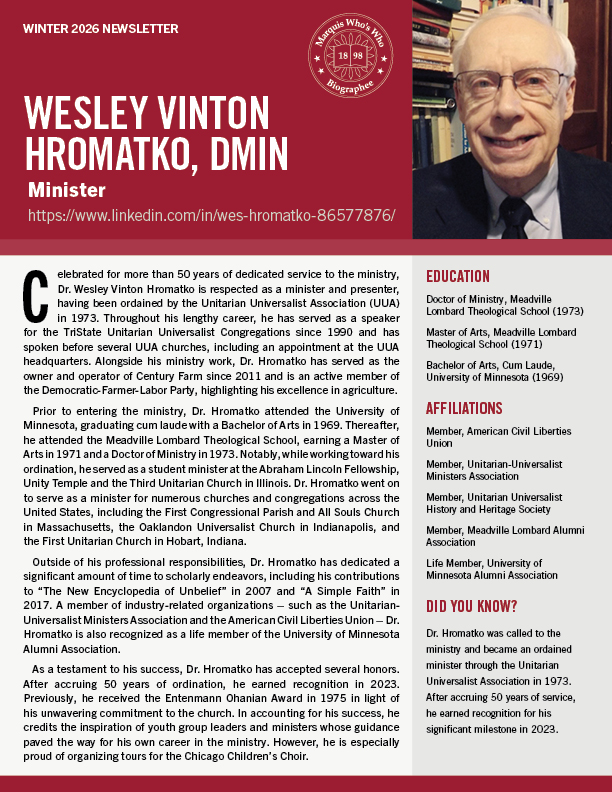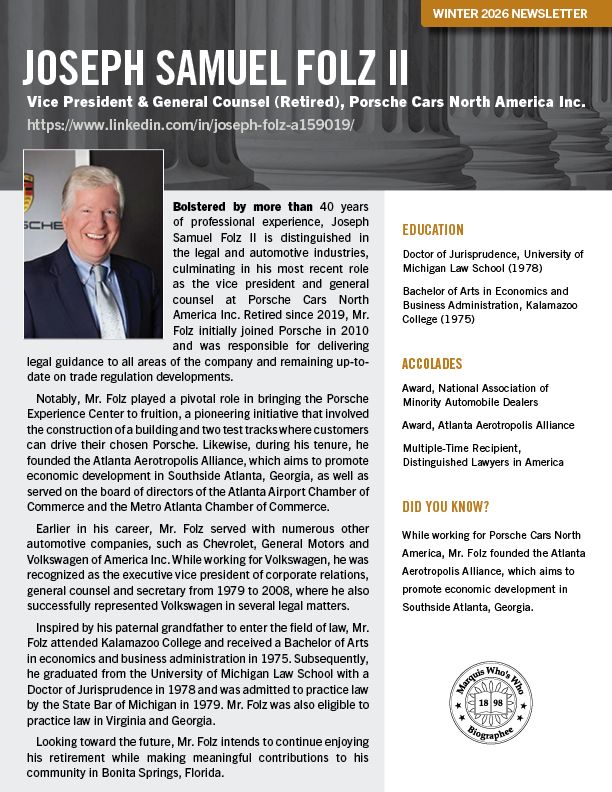
From a formative age, Paul Frederick Burmeister was enthralled with agriculture and farm work. Having been raised on a family farm, he often rode the tractor while his father conducted field work, as well as monitored weather alongside his mother, brother and sister. Emphasizing that the industry appealed to him in light of its independent nature, Mr. Burmeister sought to pursue the field professionally. In 1960, he earned a Bachelor of Arts in chemistry and agriculture at Fort Hays State University, followed by completion of postgraduate coursework at the University of Kansas in 1961. One decade later, Mr. Burmeister continued his edification by completing the course “Can Man Survive?” at Fort Hays State University, which he cites as a highlight of his career.
Continuing his profession as a farmer for seven decades, Mr. Burmeister is the owner of Paul Burmeister Farm, through which he tends to the land and produces winter wheat. The grain sorghum – which is planted during the autumn and spring months – is a significant crop used for both animal feed and human consumption. Likewise, he plants sweetclover as a soil-improving and soil nitrogen-producing crop, as well as smooth brome grass in waterways.
Earlier in his career, Mr. Burmeister volunteered for the Peace Corps, through which he relocated to the Ludhiana District in India to work in agricultural engineering following his completion of his bachelor’s degree. Living and working in India for two years, he returned to his family farm and worked with the Kansas Army National Guard between 1963 and 1969. Furthermore, Mr. Burmeister taught Sunday school classes at a local church in 1964.
To remain abreast of developments in his field, Mr. Burmeister maintains active affiliation as a life member of the Sierra Club, the Kansas State Historical Society, the Kansas Farmers Union, the American Solar Energy Society and the National Wildlife Federation. Moreover, he is a noted member of the Ocean Conservancy, the Nature Conservancy, the Rainforest Alliance and the National Audubon Society. Demonstrating versatility in his profession, Mr. Burmeister has also contributed articles and other writings to numerous professional journals within the realms of environmental and agricultural preservation.
As a testament to his success, Mr. Burmeister was recognized with the Barton County Annual Bankers Award for soil conservation in Kansas in 1989. Looking toward the future, he hopes to pass down his legacy as a staunch advocate for environmental awareness.


